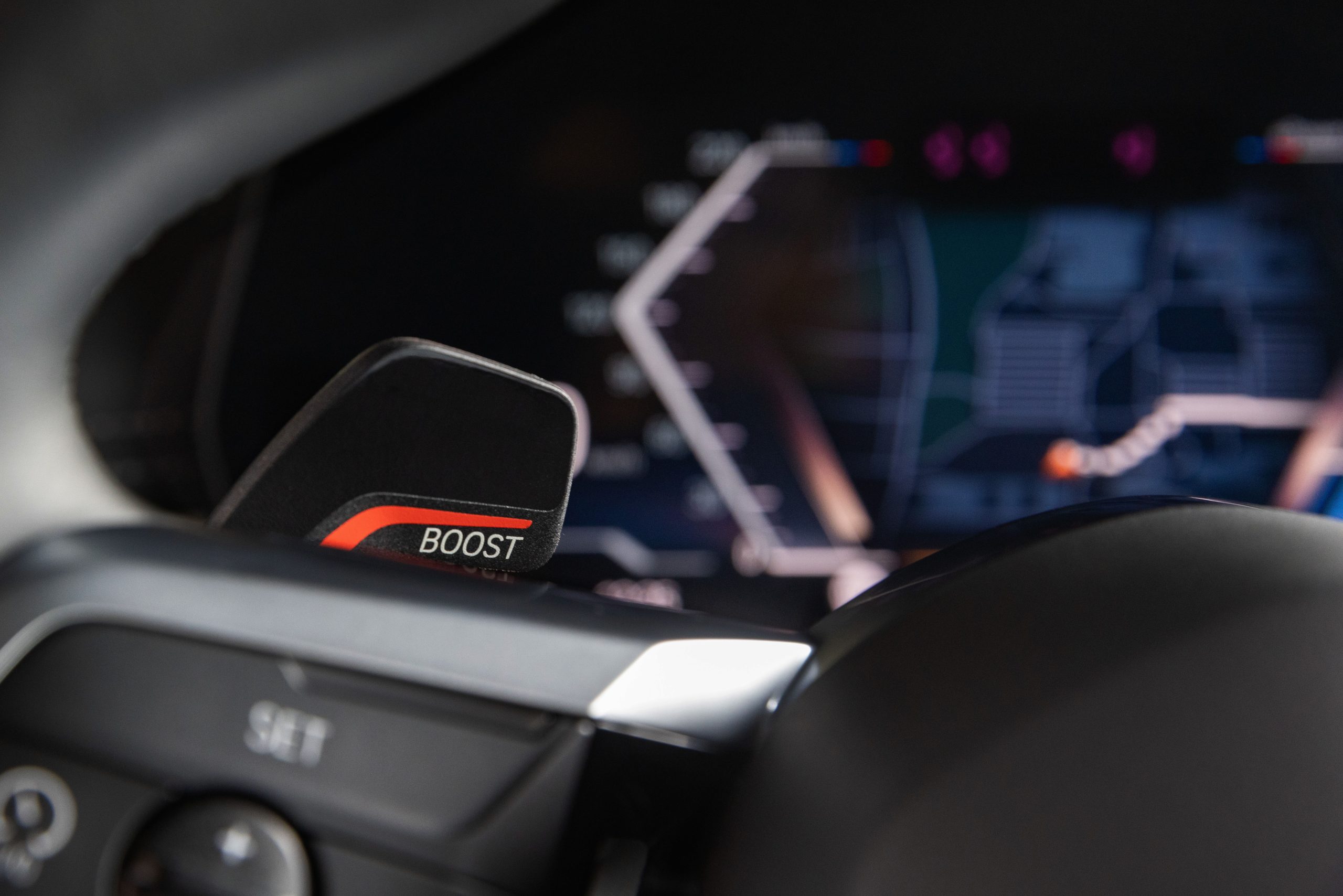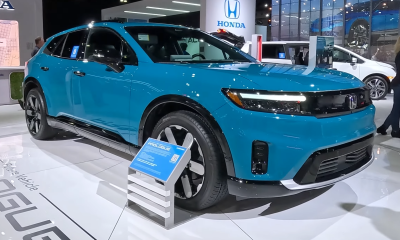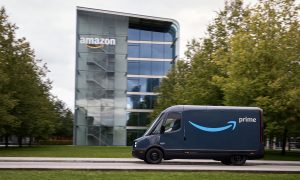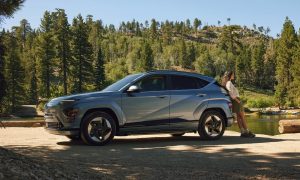With the advent of connected cars, the emergence of in-car subscriptions seems inevitable. But while subscriptions to services like Tesla’s Full Self-Driving suite are quite reasonable considering the full price of the system, other carmakers such as BMW have opted to introduce in-car subscriptions for features that are otherwise built-in already, such as heated seats.
The trend of in-car subscriptions has caught the eye of lawmakers in New Jersey, two of whom took it upon themselves to draft a proposed bill that would ban car companies from offering subscriptions for features that “utilizes components and hardware already installed on the motor vehicle at the time of purchase.” The features must also be able to function without ongoing expenses to a “dealer, manufacturer, or third-party service provider.”
This suggests that if components for features such as heated seats are already equipped on vehicles, car manufacturers should not charge customers for their activation. Systems like Tesla’s Premium Connectivity, however, would likely still be allowed under the proposed bill since the EV maker spends resources maintaining the system.
Following is the lawmakers’ statement from the proposed bill.
“This bill prohibits a motor vehicle dealer or manufacturer of motor vehicles sold in this State from offering to a consumer a subscription service for any motor vehicle feature that (1) utilizes components and hardware already installed on the motor vehicle at the time of the vehicle’s purchase or lease; and (2) would function after activation without ongoing expense to the dealer, manufacturer, or third-party service provider. The provisions of this bill do not apply to any third-party service provider that offers features such as satellite radio or in-car Wi-Fi.
“The bill defines ‘motor vehicle feature’ to mean any convenience or safety function included on the motor vehicle, such as heated seats or driver assistance that typically is offered to a consumer as an upgrade at the time of purchase or lease of the motor vehicle. In addition, the bill defines ‘subscription service’ to mean a service provided on a subscription basis in exchange for a recurring payment, including, but not limited to, a weekly, monthly, or annual payment charged to and made by a consumer.
“A violation of the bill’s provisions is an unlawful practice under the consumer fraud act punishable by a monetary penalty of not more than $10,000 for a first offense and not more than $20,000 for any subsequent offense. In addition, violations may result in cease and desist orders issued by the Attorney General, the assessment of punitive damages, and the awarding of treble damages and costs to the injured party.
“The sponsor notes that car companies are increasingly seeking to charge consumers a subscription fee to access certain features on their vehicles, such as heated seats, even though the components necessary for the feature to function are already installed on the vehicle at the time of sale. When a consumer subscribes to the feature, the car company uses software to remotely activate the feature during the subscription period.
“Car companies assert that a subscription-based business model would provide more choice to the consumer, but the practice requires installing all of the necessary components and hardware on the vehicle before the consumer decides to subscribe to the feature, which will likely raise the purchase price for every consumer, whether they intend to subscribe to the feature or not. The sponsor asserts that during this time of rising consumer prices, it is important to guard against business practices that primarily serve to increase corporate profits.”
Don’t hesitate to contact us with news tips. Just send a message to simon@teslarati.com to give us a heads up.
News
Tesla begins Robotaxi certification push in Arizona: report
Tesla seems serious about expanding its Robotaxi service to several states in the coming months.

Tesla has initiated discussions with Arizona transportation regulators to certify its driverless Robotaxi service in the state, as per a recent report from Bloomberg News. The move follows Tesla’s launch of its Robotaxi pilot program in Austin, Texas, as well as CEO Elon Musk’s recent comments about the service’s expansion in the Bay Area.
The Arizona Department of Transportation confirmed to Bloomberg that Tesla has reached out to begin the certification process for autonomous ride-sharing operations in the state. While details remain limited, the outreach suggests that Tesla is serious about expanding its driverless Robotaxi service to several territories in the coming months.
The Arizona development comes as Tesla prepares to expand its service area in Austin this weekend, as per CEO Elon Musk in a post on X. Musk also stated that Tesla is targeting the San Francisco Bay Area as its next major market, with a potential launch “in a month or two,” pending regulatory approvals.
Tesla first launched its autonomous ride-hailing program on June 22 in Austin with a small fleet of Model Y vehicles, accompanied by a Tesla employee in the passenger seat to monitor safety. While still classified as a test, Musk has said the program will expand to about 1,000 vehicles in the coming months. Tesla will later upgrade its Robotaxi fleet with the Cyercab, a two-seater that is designed without a steering wheel.
Sightings of Cybercab castings around the Giga Texas complex suggests that Tesla may be ramping the initial trial production of the self-driving two-seater. Tesla, for its part, has noted in the past that volume production of the Cybercab is expected to start sometime next year.
In California, Tesla has already applied for a transportation charter-party carrier permit from the state’s Public Utilities Commission. The company is reportedly taking a phased approach to operating in California, with the Robotaxi service starting with pre-arranged rides for employees in vehicles with safety drivers.
News
Tesla sets November 6 date for 2025 Annual Shareholder Meeting
The automaker announced the date on Thursday in a Form 8-K.

Tesla has scheduled its 2025 annual shareholder meeting for November 6, addressing investor concerns that the company was nearing a legal deadline to hold the event.
The automaker announced the date on Thursday in a Form 8-K submitted to the United States Securities and Exchange Commission (SEC). The company also listed a new proposal submission deadline of July 31 for items to be included in the proxy statement.
Tesla’s announcement followed calls from a group of 27 shareholders, including the leaders of large public pension funds, which urged Tesla’s board to formally set the meeting date, as noted in a report from The Wall Street Journal.
The group noted that under Texas law, where Tesla is now incorporated, companies must hold annual meetings within 13 months of the last one if requested by shareholders. Tesla’s previous annual shareholder meeting was held on June 13, 2024, which placed the July 13 deadline in focus.
Tesla originally stated in its 2024 annual report that it would file its proxy statement by the end of April. However, an amended filing on April 30 indicated that the Board of Directors had not yet finalized a meeting date, at least at the time.
The April filing also confirmed that Tesla’s board had formed a special committee to evaluate certain matters related to CEO Elon Musk’s compensation plan. Musk’s CEO performance award remains at the center of a lengthy legal dispute in Delaware, Tesla’s former state of incorporation.
Due to the aftermath of Musk’s legal dispute about his compensation plan in Delaware, he has not been paid for his work at Tesla for several years. Musk, for his part, has noted that he is more concerned about his voting stake in Tesla than his actual salary.
At last year’s annual meeting, TSLA shareholders voted to reapprove Elon Musk’s compensation plan and ratified Tesla’s decision to relocate its legal domicile from Delaware to Texas.
Elon Musk
Grok coming to Tesla vehicles next week “at the latest:” Elon Musk
Grok’s rollout to Tesla vehicles is expected to begin next week at the latest.

Elon Musk announced on Thursday that Grok, the large language model developed by his startup xAI, will soon be available in Tesla vehicles. Grok’s rollout to Tesla vehicles is expected to begin next week at the latest, further deepening the ties between the two Elon Musk-led companies.
Tesla–xAI synergy
Musk confirmed the news on X shortly after livestreaming the release of Grok 4, xAI’s latest large language model. “Grok is coming to Tesla vehicles very soon. Next week at the latest,” Musk wrote in a post on social media platform X.
During the livestream, Musk and several members of the xAI team highlighted several upgrades to Grok 4’s voice capabilities and performance metrics, positioning the LLM as competitive with top-tier models from OpenAI and Google.
The in-vehicle integration of Grok marks a new chapter in Tesla’s AI development. While Tesla has long relied on in-house systems for autonomous driving and energy optimization, Grok’s integration would introduce conversational AI directly into its vehicles’ user experience. This integration could potentially improve customer interaction inside Tesla vehicles.
xAI and Tesla’s collaborative footprint
Grok’s upcoming rollout to Tesla vehicles adds to a growing business relationship between Tesla and xAI. Earlier this year, Tesla disclosed that it generated $198.3 million in revenue from commercial, consulting, and support agreements with xAI, as noted in a report from Bloomberg News. A large portion of that amount, however, came from the sale of Megapack energy storage systems to the artificial intelligence startup.
In July 2023, Musk polled X users about whether Tesla should invest $5 billion in xAI. While no formal investment has been made so far, 68% of poll participants voted yes, and Musk has since stated that the idea would be discussed with Tesla’s board.
-

 Elon Musk1 week ago
Elon Musk1 week agoTesla investors will be shocked by Jim Cramer’s latest assessment
-

 Elon Musk3 days ago
Elon Musk3 days agoElon Musk confirms Grok 4 launch on July 9 with livestream event
-

 Elon Musk18 hours ago
Elon Musk18 hours agoxAI launches Grok 4 with new $300/month SuperGrok Heavy subscription
-

 News7 days ago
News7 days agoTesla Model 3 ranks as the safest new car in Europe for 2025, per Euro NCAP tests
-

 Elon Musk2 weeks ago
Elon Musk2 weeks agoA Tesla just delivered itself to a customer autonomously, Elon Musk confirms
-

 Elon Musk1 week ago
Elon Musk1 week agoxAI’s Memphis data center receives air permit despite community criticism
-

 Elon Musk2 weeks ago
Elon Musk2 weeks agoTesla’s Omead Afshar, known as Elon Musk’s right-hand man, leaves company: reports
-

 News2 weeks ago
News2 weeks agoXiaomi CEO congratulates Tesla on first FSD delivery: “We have to continue learning!”


















